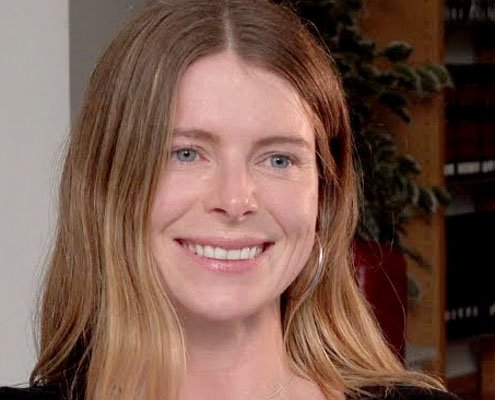Reading time: Just over 1 minute
I like to share interesting pieces of figurative language I encounter in my reading. I write today about a series of metaphors and similes from Emma Cline…
When I was young I had a stronger stomach for grisly novels. I read Truman Capote’s In Cold Blood (and loved it) as an 18-year-old, and, a few years later, Helter Skelter, the true crime story of the Charles Manson murders.
Recently, when I heard that California novelist Emma Cline (pictured above) had re-told the Manson story in novel form, I decided to read it. Thankfully, her novel The Girls is not graphic and Cline’s faire for figurative language makes the book well worth spending time with, even though the plot feels strangely flat. It’s perhaps too predictable.
But there’s nothing predictable about her figurative language, as you can see here:
- These long-haired girls seemed to glide above all that was happening around them, tragic and separate. Like royalty in exile.
- They looked up from the bright wash of the kitchen lights like raccoons caught in the trash.
- How thrilled I’d been at the sanctioned performance: the way I went up to strangers and let them admire the dog, my smile as indulgent and constant as a salesgirl’s, and how vacant I’d felt when it was over, when no one needed to look at me anymore.
- She bought handcrafted earrings from women in her encounter group, came back swinging primitive bits of wood from her ears, enameled bracelets the color of after-dinner mints jittery on her wrists.
- By then the girls were a block away, their hair streaming behind them like flags, and a black school bus heaved past and slowed, and the three of them disappeared inside.
- He was eighteen, Connie’s older brother, and his forearms were the color of toast.
- Connie decided she had a crush on Henry, so our Friday night would be devoted to perching on the weight-lifting bench, Henry’s orange motorcycle parked beside us like a prize pony.
- She called him stubbornly by his full name, Will-iam, like the extra syllable was the secret password that would transform him into a grown, responsible man. She clung to him like a burr.
- “I’m sorry,” my mother mouthed across the table, but when the man turned to feed her a slimy-looking snow pea from his fork, she opened her mouth obediently, like a bird.
- Girls wore their best thrift store rags and carried instruments in their arms as gently as babies, the sun catching the steel of a guitar and fractaling into hot diamonds of light.
- I followed Suzanne past the motorcycles parked at the front of the main house, as big and heavy looking as cows.
- The houseboats knocking peaceably against each other, like cubes of ice.
- Next week we would go to the aquarium and watch the jellyfish gape and parry in their illuminated tanks, suspended in the water like delicate handkerchiefs.
[Photo credit: librairie mollat. Cropped. Licensed under the Creative Commons Attribution-Share Alike 3.0 Unported license.]


